Yujiao Lu
MSDF: A Deep Reinforcement Learning Framework for Service Function Chain Migration
Nov 13, 2019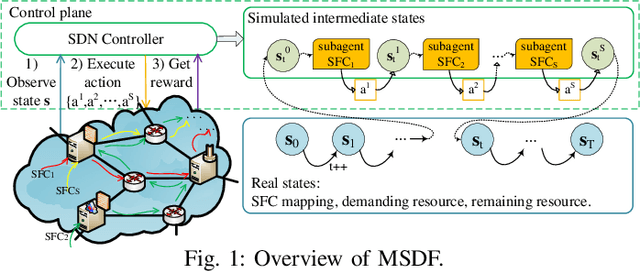


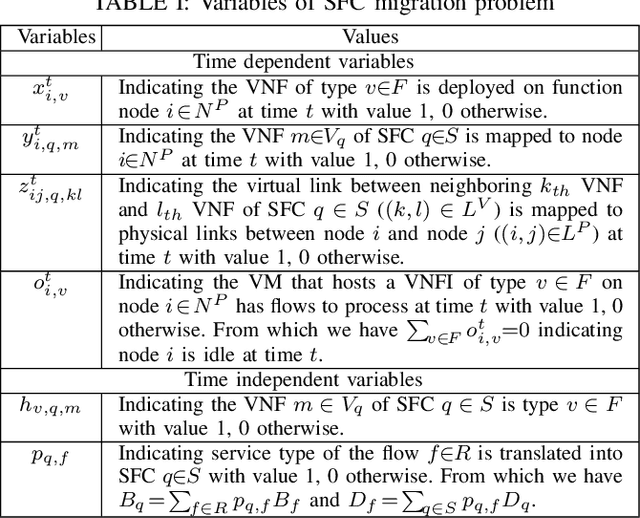
Abstract:Under dynamic traffic, service function chain (SFC) migration is considered as an effective way to improve resource utilization. However, the lack of future network information leads to non-optimal solutions, which motivates us to study reinforcement learning based SFC migration from a long-term perspective. In this paper, we formulate the SFC migration problem as a minimization problem with the objective of total network operation cost under constraints of users' quality of service. We firstly design a deep Q-network based algorithm to solve single SFC migration problem, which can adjust migration strategy online without knowing future information. Further, a novel multi-agent cooperative framework, called MSDF, is proposed to address the challenge of considering multiple SFC migration on the basis of single SFC migration. MSDF reduces the complexity thus accelerates the convergence speed, especially in large scale networks. Experimental results demonstrate that MSDF outperforms typical heuristic algorithms under various scenarios.
Learning Deterministic Policy with Target for Power Control in Wireless Networks
Feb 21, 2019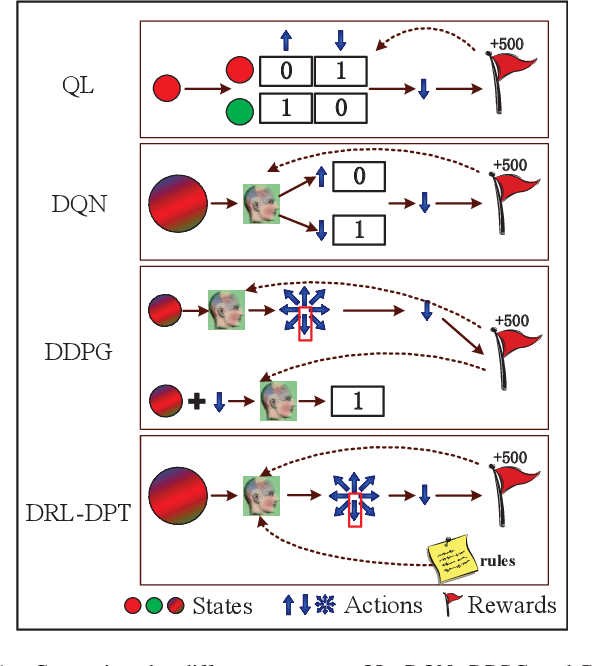
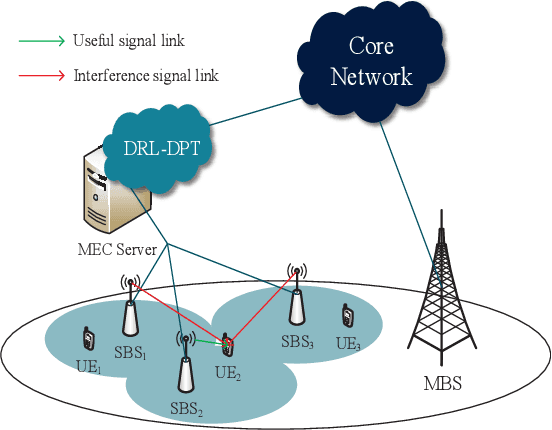

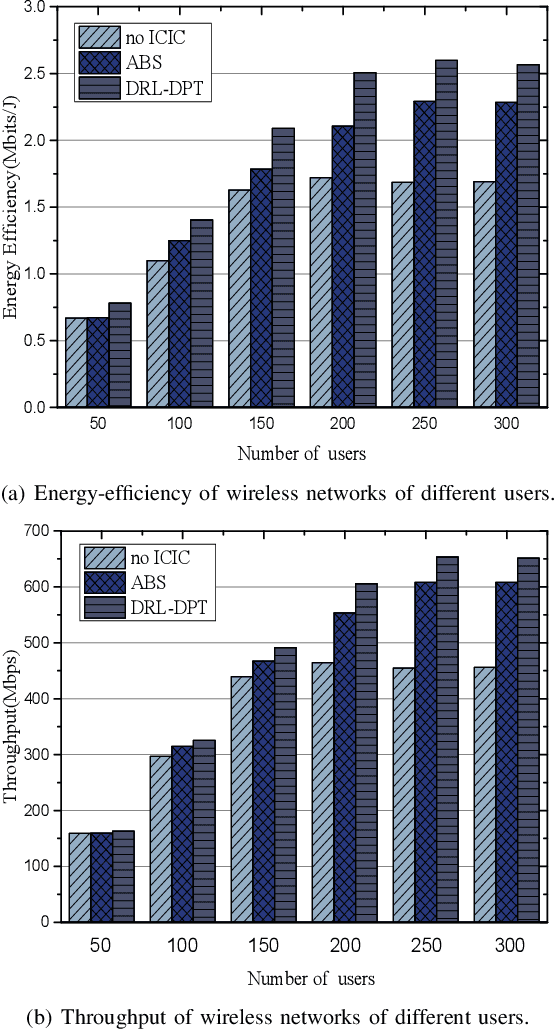
Abstract:Inter-Cell Interference Coordination (ICIC) is a promising way to improve energy efficiency in wireless networks, especially where small base stations are densely deployed. However, traditional optimization based ICIC schemes suffer from severe performance degradation with complex interference pattern. To address this issue, we propose a Deep Reinforcement Learning with Deterministic Policy and Target (DRL-DPT) framework for ICIC in wireless networks. DRL-DPT overcomes the main obstacles in applying reinforcement learning and deep learning in wireless networks, i.e. continuous state space, continuous action space and convergence. Firstly, a Deep Neural Network (DNN) is involved as the actor to obtain deterministic power control actions in continuous space. Then, to guarantee the convergence, an online training process is presented, which makes use of a dedicated reward function as the target rule and a policy gradient descent algorithm to adjust DNN weights. Experimental results show that the proposed DRL-DPT framework consistently outperforms existing schemes in terms of energy efficiency and throughput under different wireless interference scenarios. More specifically, it improves up to 15% of energy efficiency with faster convergence rate.
 Add to Chrome
Add to Chrome Add to Firefox
Add to Firefox Add to Edge
Add to Edge